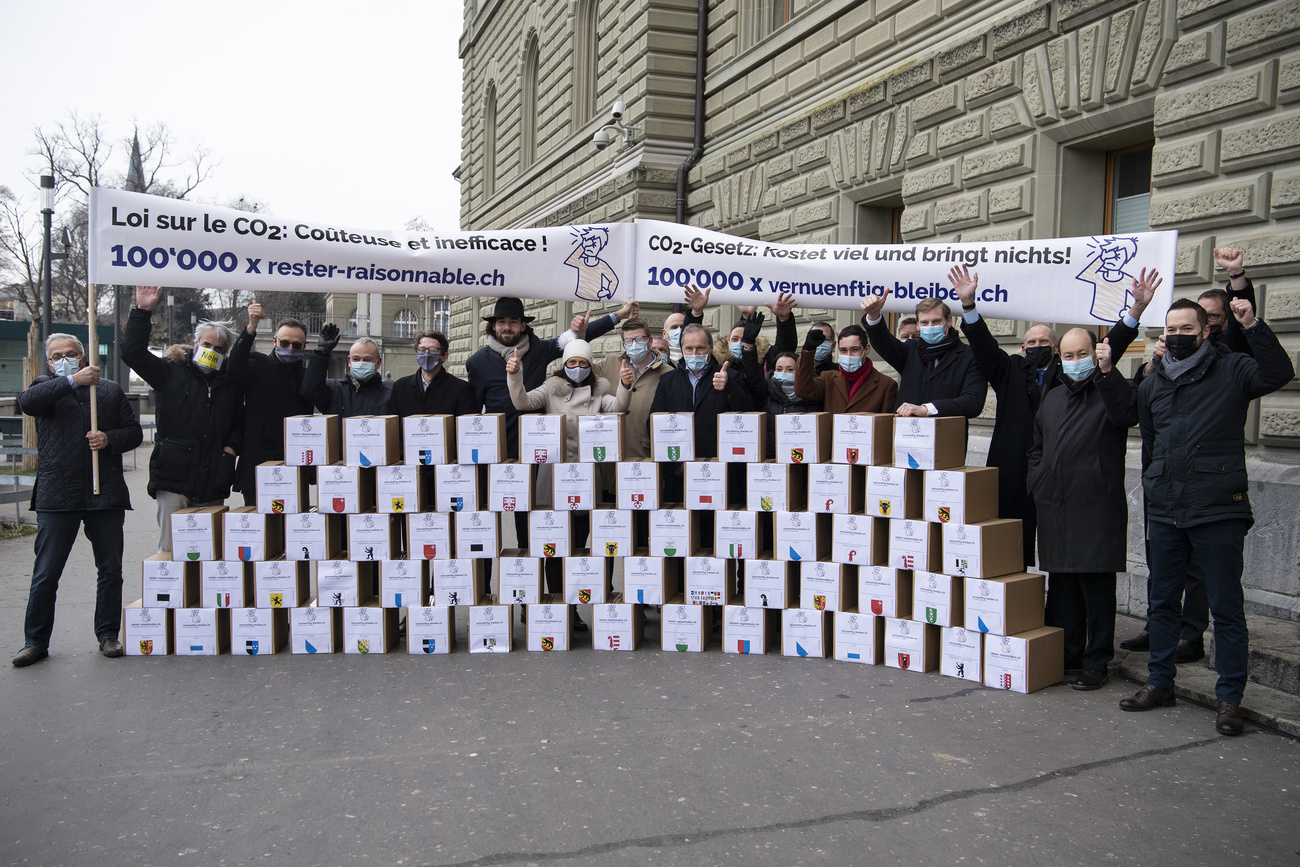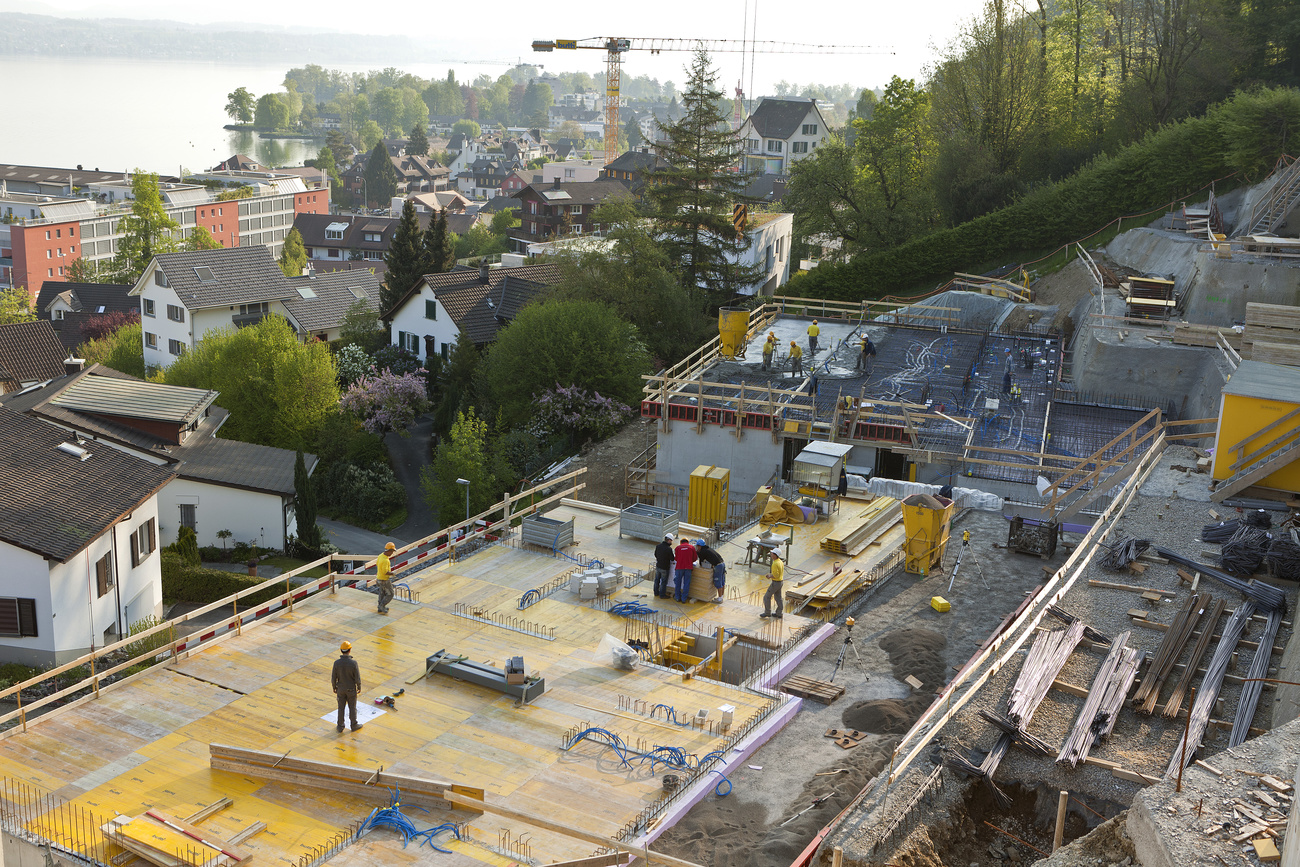The CO2 law is an ‘opportunity for all economic actors’

Switzerland’s climate policy will be decided at the ballot box on June 13. Under the Paris Climate Agreement, the country has pledged to halve its emissions by 2030. To achieve this, the government and parliament have drawn up a new CO2 law. It’s a step in the right direction, argues Christophe Schaer, co-chair of an economic committee in favour of the new legislation.
The new law is a polarising issue among Swiss business circles. It contains measures affecting road traffic, air traffic, industrial emissions and building renovations. A cross-party economic committee, made up of representatives from the automotive, transport, aviation, construction and oil industries, has successfully launched a referendum against the new legislation, calling it “costly and inefficient”.
Climate activists have also spoken out against the law, arguing it does not go far enough.
But the law has been welcomed in other sectors of the Swiss economy. It creates opportunities for players in the solar, high-tech, wood and building renovation sectors, they say. Schaer, who is also the director of the building technology association suissetec, believes that the revision of the CO2 law is a worthwhile effort because it promotes innovation in the country.

More
Swiss climate strategy to be decided at the ballot box
SWI swissinfo.ch: Why is the revision of the CO2 law necessary?
Christophe Schaer: We have a goal, which we set ourselves in the Paris Climate Agreement: decarbonisation. If we want to achieve it, we must do everything to reduce CO2 emissions. The comprehensive revision of the CO2 law offers reasonable and affordable ways to achieve this. It provides companies with reliable and transparent framework conditions which enable them to invest in new technologies. In our view, this is an opportunity for all players in the economy.
SWI: The CO2 law means additional taxes and requirements. Won’t this hurt the Swiss economy?
C.S.: The law is a mixture of objectives and instruments. AEE SUISSE, the umbrella organisation for the renewable energy and energy efficiency sector, has carried out a study which shows that it is precisely these instruments that will make it possible to achieve the targets as quickly as possible. I am convinced that we are on the right track. The law does introduce new taxes, but as incentives. Their purpose is to change practices to reduce emissions. By changing their behaviour, everyone can influence the amount of tax they pay. What’s more, they will be abolished automatically once we have reached the target.

More
The CO2 law won’t ‘save the glaciers’
SWI: Won’t the law put too much of a strain on people’s budgets, for example paying for petrol, plane tickets and heating oil?
C.S.: Opponents of the law claim that it will cost the taxpayer a lot of money. According to their estimates, the bill for a family of four will increase by CHF1,000 ($1,109) per year. However, they base their calculations on extreme cases, i.e. people who fly a lot, who own a large car and who drive a lot. If we take into account an average citizen, the burden is not much greater. It is an extra CHF100 per year.
On the one hand, the money from incentive taxes is largely redistributed to the citizens. On the other hand, these are not simply additional costs, but investments, which must be considered together with the corresponding benefits. By behaving in such a way as to achieve the emission reduction target, one can benefit from this system.
SWI: Some of the climate strike activists oppose the revision, saying it does not go far enough. Will the new CO2 law be enough to keep global warming below 2 degrees?
C.S.: Only a small number of climate activists are fighting the revision of the law. However, it is not at all strategic to block it, because it is a first step. I am convinced it will not be enough, but it is a step in the right direction. In a few years’ time, we will have to take stock and certainly make further adjustments.
SWI: At a time of pandemic, when many people have lost their jobs, will it be more difficult to get the public behind this law?
C.S.: It all depends on how you argue. If you tell people they will have more costs, you will not convince them. Personally, I have renovated my house, which was built in the 1970s. Thanks to the work done, I now have negative charges. This type of investment will pay off in the coming years. In the end, both the population and the economy will benefit from this law.
SWI: The Climate Change Performance Index 2021 laments the absence of measures for the agricultural sector. Is this not a shortcoming of the law?
C.S.: The CO2 law takes measures that affect the three main sources of CO2: transport, construction, and industry. There are other issues in the agricultural sector. Initiatives are underway to address these specific issues. I think it is good that the law does not mix everything up.
Translated from French by Dominique Soguel-dit-Picard

More
Swiss CO2 emissions: Small country, big footprint
Translated from French by Dominique Soguel

In compliance with the JTI standards
More: SWI swissinfo.ch certified by the Journalism Trust Initiative













Join the conversation!